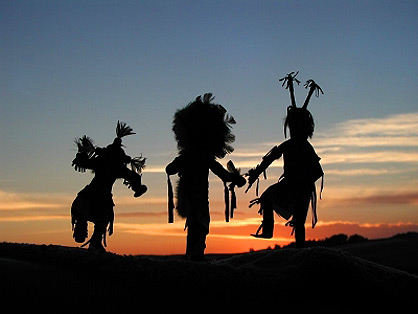 True magic is found in random encounters at rain-soaked bus stops in Victoria.
True magic is found in random encounters at rain-soaked bus stops in Victoria.“American elections are all a bunch of hocus pocus!” Poof! From out of the confines of a leaky bus shelter came this succinct little political critique, and so began my recent conversation with Jerry, a retired watch repairman. “Just look at all the money going into those campaigns.” What followed was two hours of entertaining and insightful talks that took us each from being stranger to friend.
To be sure, this topic found an audience in me for a reason. My partner and I had just returned from an inspiring trip to Seattle to celebrate the election of the first black American president in US history, an up-till-now incomparable and unprecedented social, political and cultural achievement.
This in a country that just over 200 years ago built its White House with black slave labourers, shackled to a brutally stubborn mentality that kept them indentured for generations because they looked not altogether unlike the new soon-to-be president Obama.
The long and ongoing history of the black American experience, their citizens’ struggle, so well articulated in Obama’s speech on race, is indeed long and ongoing. The majority of black Americans continue to be ghettoized. Among the groups most affected by the recent subprime mortgage crisis in the United States are African American families. More black youth are still to be found in prisons than they are in universities.
Still, we travelled to the United States to feel closer to the moving symbolism being crafted out of the new American political landscape. After all, it is symbols that have populated our lives, not grey and unending statistics. And a symbol, Barack Obama most certainly is.
If it wasn’t clear by that feeling in your chest as you watched him make his acceptance speech, or by the African American newscasters finally breaking down on air, or by football players risking it all to raise a black and white glove to the air, or by the tears of Jesse Jackson, Oprah and the millions of other black, white, Hispanic (the list goes on) Americans and foreigners alike, I should take this time to articulate here for the first time—Barack Obama is fast becoming a powerful icon. His stoic profile populates street posters, t-shirts, bumper stickers, and buttons in a style reminiscent of Che Guevara propaganda, incubated in Havana and taken to its logical conclusion upon the chest of Chad Kroeger of Nickelback.
People (myself included) are clearly moved by Obama’s story. And for a moment during that speech, things felt strangely different everywhere. Like America was unrecognizable. True, the critique given by Jerry and others still stands. Obama raised over $640 million throughout his campaign, much of it corporate money, a staggering sum. But I suspect not much can be settled for certain at this moment in history. Among that $640 million was an equally enormous amount of small donations made by ordinary citizens, and much of the Obama campaign was organized spontaneously by waves of affected volunteers. Much depends now on how much of that organized political pressure is kept on him to lean more progressively.
But for now I'm rather happy being enchanted by the symbolism of it all. And so it seems is another unusual political pundit. Speaking from death row on his radio program was Mumia Abu Jamal, the ex-Black Panther accused of murdering a Philadelphia cop in 1981. On election night he had this to say about the newly minted president-elect, a man who does not oppose the death penalty unequivocally. Speaking on the meaning of victory he reads:
“We cannot deny its symbolic value. In millions of Black homes, his picture will be placed on walls, beside Martin, John F. Kennedy, and a pale painting of Jesus. I'd bet that quite a few African homes (especially in Kenya) will also boast his smiling visage.
But beyond symbol is substance, and substantively, some scholars have defined Obama as little different from his predecessors. Yet, symbols are powerful things. Sometimes, they have a life all their own. They may come to mean something more than first intended.
History has been made. We shall see exactly what kind of history it will be. From death row this is Mumia Abu Jamal.”

No comments:
Post a Comment